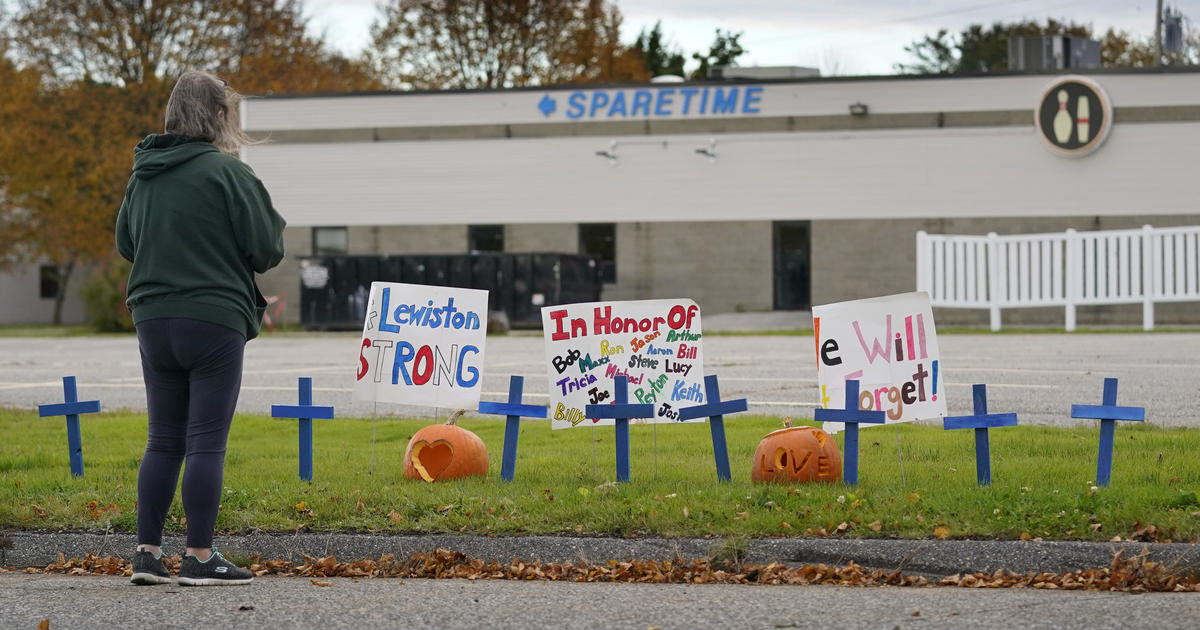Maine’s Lewiston grapples with the aftermath of a mass shooting, a tragedy that has profoundly impacted the community and spurred reflection on gun violence and mental health. The October 25, 2023, attack, which claimed 18 lives and injured many others, remains a stark reminder of the vulnerability of even seemingly safe communities. The event prompted immediate and sustained efforts to address the crisis and its lasting consequences.
The Devastating Impact of the Lewiston Shooting
The mass shooting in Lewiston was the deadliest in Maine’s history, shattering the sense of security for its residents. The event occurred at a bowling alley and a cornhole tournament, locations associated with community and leisure, making the violence particularly jarring. Eighteen individuals lost their lives, and numerous others sustained injuries, both physical and emotional. The psychological impact extends far beyond the immediate victims, rippling throughout families, friends, and the broader Lewiston community. Many residents struggle with feelings of grief, fear, and uncertainty in the wake of the tragedy. The sudden loss of life left many grappling with unimaginable sorrow and prompting widespread mental health issues. The close-knit nature of Lewiston exacerbates the trauma’s pervasive reach, transforming a previously safe town into a place forever scarred by violence. The physical locations themselves, once lively social spaces, are now infused with the memory of loss.
The Healing Process: A Community Response
The response to the tragedy has been characterized by collective grief and the emergent need for healing. Community initiatives, such as “Lewiston Strong,” offer solace and support, fostering unity amidst profound suffering. Elizabeth Seal, whose husband was murdered in the shooting, exemplifies the resilience within the community while demanding justice for victims and survivors. Community initiatives are helping victims and survivors start a slow process of healing while demands for justice also are taking precedence. Individuals are finding strength and hope in shared experiences of loss. The event has revealed the deep need for resources designed to address trauma on individual and collective levels.
The Legal Ramifications and Calls for Accountability
The families of the victims and survivors launched lawsuits against the U.S. Army, claiming negligence in failing to address the mental health deterioration of the perpetrator, Robert Card, an Army reservist. The lawsuits reflect a growing demand for accountability from those deemed responsible for the preventable tragedy, and they reveal potential systemic issues around identifying and responding to the warning signs of imminent violent actions from military personnel who might present mental health concerns. This legal battle sheds light on the broader conversation surrounding mental health within military institutions and highlights how a failure to promptly and comprehensively address mental health challenges can have fatal consequences. While legal action aims to deliver justice, a substantial aspect of accountability will rest upon systemic alterations within relevant organizations to effectively recognize and counter potential instances of violent extremism among military personnel and broader communities.
New Gun Laws and Enhanced Mental Health Support
In the aftermath of the tragedy, the Maine Legislature enacted new gun laws, including strengthening the state’s “yellow flag” statute—which facilitates temporary gun removal from individuals deemed a risk—criminalizing the transfer of firearms to prohibited persons, and expanding funding for mental health crisis services. These legislative adjustments reflect the resolve of lawmakers to tackle gun violence and to proactively improve mental health support within the state. The increased access to mental health services should aid Maine’s citizens and could also reduce the risk of future tragic events. Strengthening gun regulations should curb violence, and the laws signify a dedication to preventing the repetition of such tragedies.
Reflections on the “Lewiston Strong” Movement
The slogan “Lewiston Strong” emerged organically in the days following the shooting. Its continuous use demonstrates a commitment to community and resilience, though with underlying questioning about the future and what “strong” truly implies. The motto raises important conversations around community healing, long-term recovery, and the potential challenges in creating sustainable, inclusive, and resilient social structures in the long term. As Carrie Jadud from the Maine People’s Alliance highlights, true strength involves not just surviving the immediate crisis but proactively engaging in collective and individual healing processes to construct a safer and more supportive future.
Looking Ahead: Healing and Prevention
The events in Lewiston are forcing introspection into how societies prevent future incidents of gun violence and provide robust and inclusive support for affected individuals. While the slogan “Lewiston Strong” reflects the community’s response, it raises essential questions. While this focus on resilience has allowed for collective efforts toward coping with the pain, questions around what constitutes “strength” remain pertinent, calling for ongoing support for community members and addressing long-term emotional needs. Sustainable healing involves not only the provision of trauma-informed care but also active engagement in strategies aimed at violence prevention and systemic reforms that encourage safe and caring environments for the citizenry.
Takeaway Points:
- The Lewiston mass shooting was a devastating tragedy highlighting the pervasive threat of gun violence.
- Community resilience is vital in the aftermath of such traumas, but it demands proactive and sustained support.
- Legal actions against the US Army address accountability but also underscore broader systemic failures in mental health care.
- New gun laws and expanded mental health funding signify steps toward prevention, but continuous effort and evaluation are crucial.
- The “Lewiston Strong” movement prompts reflection on true resilience, highlighting ongoing mental health and systemic needs.




